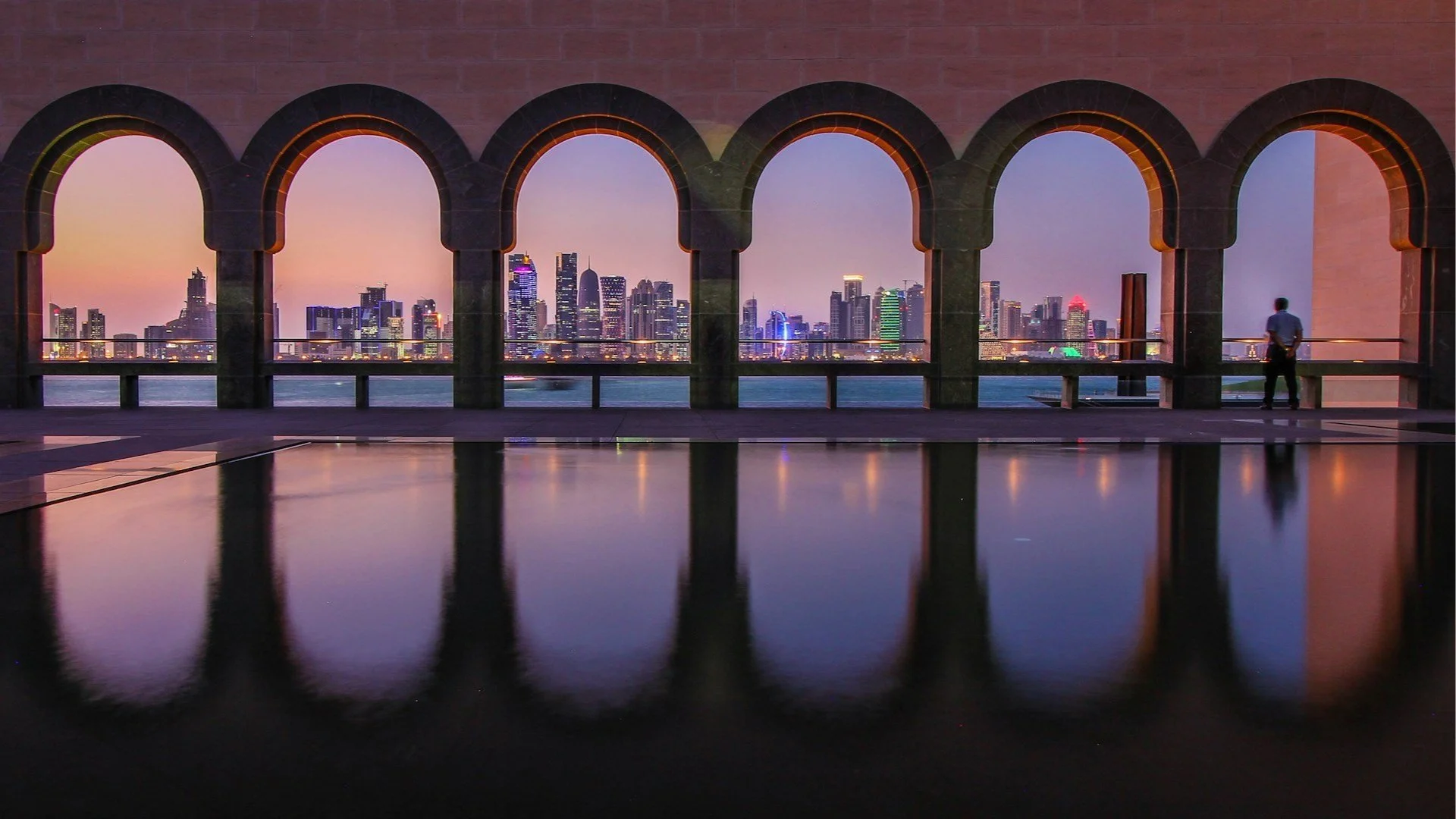Doha Can Take It!
Photo: Florian Wehde
Currently one of the UK’s most popular podcasts, The Wargame tests former senior policymakers’ responses to a hypothetical Russian attack on the British mainland. While both sides limit their ‘turns’ to conventional military and non-kinetic activities, options for “going nuclear” are frequently discussed.
A wake-up call for some over the UK’s inability to contend with external aggression, The Wargame also feeds into popular culture’s long-held fascination with apocalyptic scenarios. An intoxicating mix of near misses -think Able Archer- and growing proliferation made the Cold War ripe for dramas like Threads which pulled no punches in their depictions of nuclear conflict. As the Soviet threat faded, doomsday culture increasingly focused on the rise of machines, walking dead, bodysnatching fungi, and so on.
Despite the gloomy futures often awaiting protagonists, a key theme running through post-apocalyptic culture concerns resilience. It doesn’t matter if the earth is irradiated, power grids have been wiped out, or society has regressed along Hobbesian lines, life goes on. Humankind tries to make the best of difficult situations and, where possible, seeks a semblance of normality.
While comparisons between Iran’s recent attack on Qatar’s Al Udeid air base and hellscapes created for entertainment are of course inappropriate, the Gulf state’s ability to keep calm and carry on was nevertheless intriguing. As the country’s air defenses sprang into life Doha’s shops and restaurants initially remained open, many delivery drivers stayed on the road, and people stopped to observe the unfolding drama in the skies. And then things got back to normal.
Alongside the armed forces, Qatar Airways was the other major domestic organization forced to respond to the Iranian attack. Closure of Qatari airspace prompted the shutdown of Hamad International Airport, diversion of flights, and implementation of complex contingency measures. Yet just two days after the attack, Qatar Airways’ Chief Executive Officer published an open letter declaring that the plan had worked and normal services resumed within 18 hours.
Casual observers should not be surprised by Qatar’s ability to think the unthinkable, expect the unexpected, and get back to business as usual. Food security is a case in point, with past diplomatic tensions between the country and some Middle Eastern neighbors accelerating the need for even less reliance on regional imports. In response, Doha’s initiatives have ranged from the practical to the spectacular, most notably the flying-in of cows to build a domestic dairy production in record speed.
Accordingly, Qatar’s agriculture and farming sector witnessed a dramatic increase in production and storage capabilities between 2017 and 2021. Along with the diversification of import sources, these measures enabled Doha to weather the Gulf spat remarkably well. Qatar’s food resilience has continued to insulate the country from the full impact of the Russia-Ukraine conflict, with fellow Gulf Cooperation Council (GCC) states contending with the crisis better than other parts of the Middle East and North Africa.
Resilience is also something members of Qatar’s expatriate community know a thing or two about. Doha is home to communities originating from Lebanon, Syria, Palestine and other locations with a history of prolonged periods of conflict and picking up the pieces when conditions allow for it. Rolling news coverage of their homelands – and in some cases families and friends - coming under attack is undoubtedly traumatic. And yet Qatar’s diverse international workforce still gets up and gets on with things.
It is both naïve and insensitive to assume that everyone affected by conflict and crises is pre-programmed, according to the hackneyed British expression, to maintain a stiff upper lip. But neither should their collective ability to do exactly that be downplayed. Academic studies spanning sociology, psychology, and conflicts point to individuals and communities coping far better with adversity than initially expected. In short, they often show remarkable levels of resilience.
Besides highlighting that panic is not necessarily baked into terrible situations, researchers have also noted a propensity for people from disparate backgrounds to respond with altruistic intent. The 20th anniversary of London’s 7/7 bombings reignited debate over the threat still posed to the UK by Islamist extremism. Heated conversations across media were nevertheless punctuated with reminders of what is otherwise known as “catastrophe compassion.” These included interfaith vigils in the days following the bombings alongside acts of kindness involving survivors and members of the Muslim community.
The title of this article is a play on London Can Take It! a 1940 propaganda movie portraying the resilience and stoicism of its citizens in the face of the Blitz. While today’s security challenges have potentially greater existential implications, communities have consistently demonstrated a willingness to confront them pragmatically and with compassion. Again, what recently happened in Qatar doesn’t sit easily with past or imagined horrors. The general response of its citizens nevertheless underlines that the potential for resilience is boundless, and in its absence, someone comes along to lend a helping hand.

